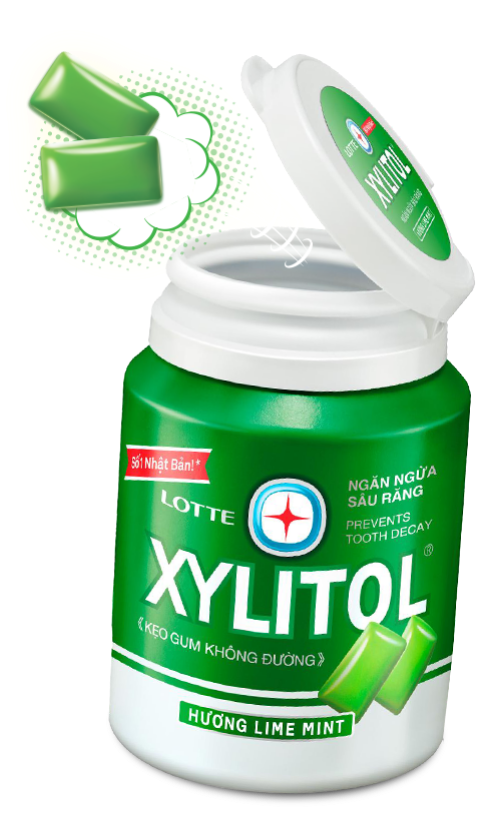

Why XYLITOL?
Xylitol is supported by
SCIENTIFIC CERTIFICATION.
The government has encouraged the consumption of Xylitol since 1970’s .
Started to teach the mechanism of Xylitol at kindergartens and schools .
Began to provide Xylitol to kindergartens, schools, dental offices…
DMFT of each age group has decreased year by year .

12.3 at 1975 8.0 at 1982 6.3 at 1985 4.7 at 1988 3.0 at 1991 2.8 at 1994 2.6 at 1997 2.5 at 2000 11.5 at 1975 10.0 at 1982 8.5 at 1985 5.4 at 1988 4.7 at 1991 3.9 at 1994 3.7 at 1997 3.7 at 2000 7.0 at 1975 4.0 at 1982 3.0 at 1985 2.0 at 1988 1.0 at 1991 1.2 at 1994 1.3 at 1997 1.5 at 2000 5.0 at 1975 2.7 at 1982 2.1 at 1985 1.8 at 1988 1.4 at 1991 1.0 at 1994 0.9 at 1997 1.0 at 2000 3.6 at 1975 1.9 at 1982 1.2 at 1985 0.8 at 1988 0.7 at 1991 0.6 at 1994 0.5 at 1997 0.4 at 2000 2.0 at 1975 0.8 at 1982 0.7 at 1985 0.5 at 1988 0.4 at 1991 0.3 at 1994 1.4 at 1975 0.2 at 1982 0.2 at 1985 0.2 at 1988 0.2 at 1991 0.2 at 1994 0.2 at 1997 0.2 at 2000
Nordblad A ym . Suun terveydenhuoltoa terveyskeskuksissa 1970-luvulta vuoteen 2000 .
Stakes, Raportteja 278 , Helsinki 2004.
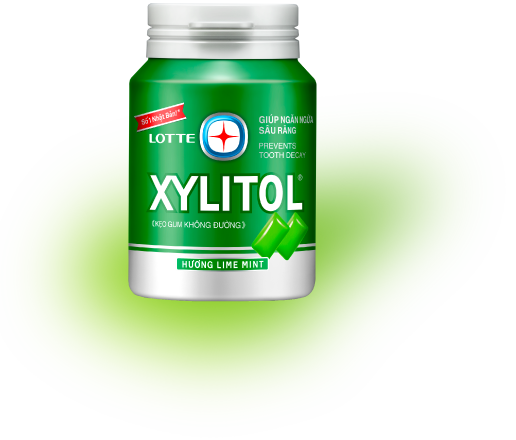
Xylitol Gum’s benefit that can help to prevent the cavity
has been approved by Dental Associations
in many countries all over the world.


 VietNam
Japan
Korea
Norway
Estonia
Holland
Canada
Ireland
Finland
England
Belgium
Belize
Sweden
Island
Latvia
Lithuania
VietNam
Japan
Korea
Norway
Estonia
Holland
Canada
Ireland
Finland
England
Belgium
Belize
Sweden
Island
Latvia
Lithuania


-
In Vietnam
VOSA has certified the effection of LOTTE XYLITOL Gum, helping to prevent the cavity by the clinical test. Only LOTTE XYLITOL is approved by VOSA in gum category.
-

In Japan
Even in Japan where Lotte Xylitol gum was born,
this product is officially certified in the country as a food for specified health use



If you don't take care of dental health,
what does your health go ?
Taking care of dental health is not just important for your teeth, gums, and breath but also affects
other medical problems inside your body. Having poor oral hygiene can lead to a variety of dental
problems and other diseases that you may not be aware of.
-

Heart Disease/Stroke Risk
Heart Disease/Stroke RiskPeople with periodontal disease have more likely twofold greater risk to suffer from heart disease and arterial narrowing caused by bacteria and plaque entering the bloodstream through the gums.
These bacteria contain a clot-promoting protein that can clog arteries and increase the risk of heart attack... -

Increase the Risk of Dementia
Increase the Risk of DementiaTooth loss due to poor dental health is considered to increase the risk factor for memory loss and early stage of Alzheimer’s disease. One study called ‘Behavioral and Brain Functions’ found that gum infections will release substances that may cause brain inflammation and destroy the brain cells.
-
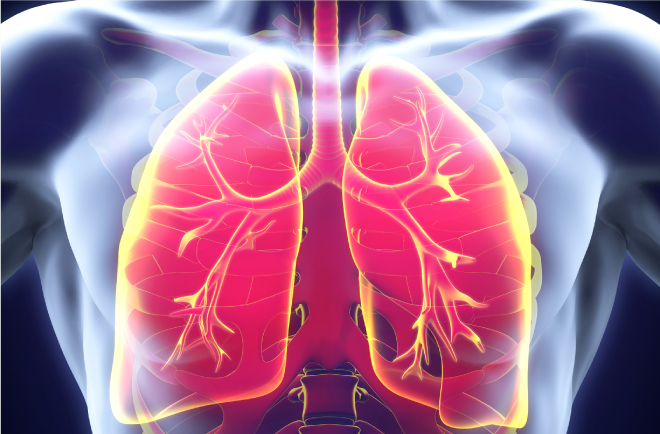
Respiratory Disease
Respiratory DiseaseA study published in Periodontology Journal uncovered that bacteria from periodontal disease are able to travel through the bloodstream then attack lungs and acute. Especially for people who already have lungs and acute problems, the risk of suffering from respiratory disease is considered to be higher.
-
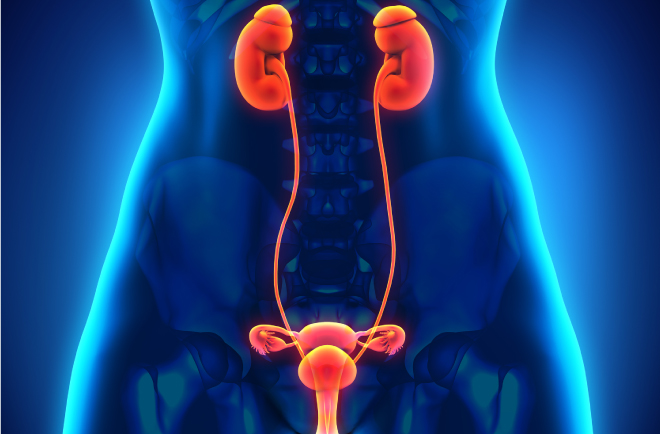
Genital Disease
Genital DiseaseMen with periodontal disease are 7 times as likely to develop erectile dysfunction as men with good dental hygiene. Pregnant women who suffer from gums infections may lead to blood infection and increase the risk of premature birth. A research presented at the European Society of Human Reproduction and Embryology also found that women having gum disease took an average of seven months to conceive...



Tips of dental health care
When you have a good oral health, you are confident in your daily
communication also you are confident to shine.
-
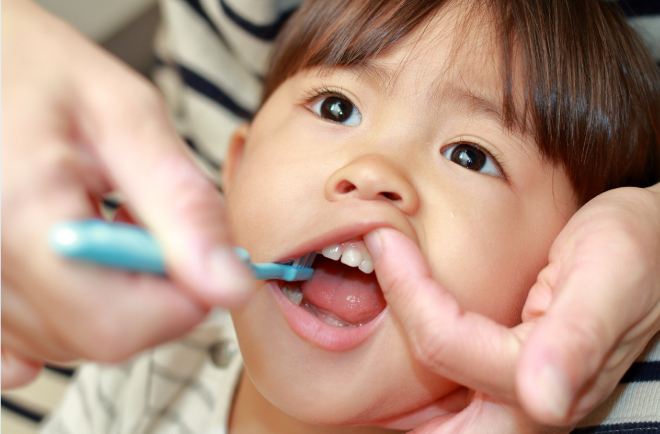
01.Proper Brushing
Proper BrushingWhen brushing your teeth, you need to position the bristles at an angle of 45 degrees with the gum line and tooth surface. The brushing motion must be gently up-and-down in order to avoid blood oozing from the gums. Lastly, don’t forget to brush the surfaces of your tongue and the roof of your mouth to remove bacteria, which might cause bad breath. Brushing at least twice a day can help preventing acid buildup from the breakdown of food by bacteria. If you do not have time for brushing due to the working schedule, the easiest way is to rinse your mouth with water right after eating to eliminate the amount of food stuck on the tooth surface and spit.
-
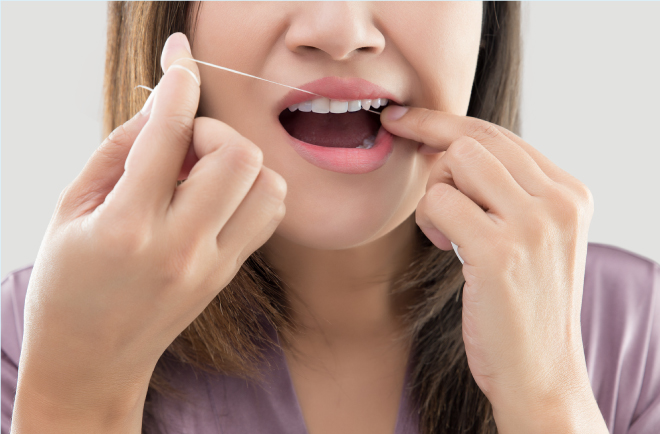
02.Do Flossing
Do FlossingBrushing and rinsing your mouth with water can help removing all the remaining food stuck in hard-to-brush position like back teeth and spit. Flossing is considered to be the best way to clean up your teeth completely; however it’s been deemed as time and money wasting from Vietnamese people for long time. If you aware of its benefits, let’s start flossing at least once a day right after brushing your teeth to achieve the best outcome.
-
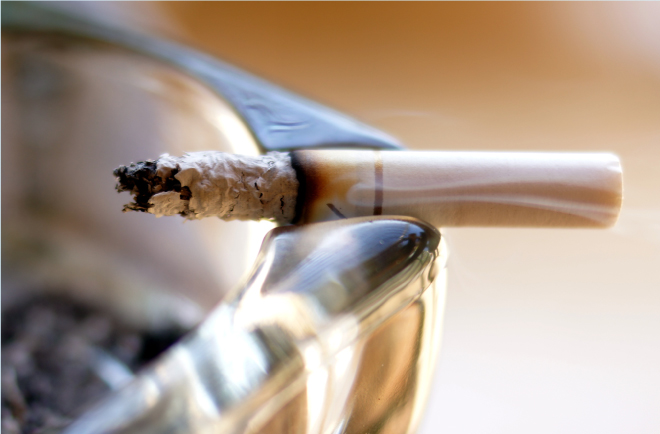
03.Avoid Tobacco
Avoid TobaccoStaying away from tobacco will save you from oral cancer and periodontal complications. Besides, your teeth might not suffer from side effects caused by tobacco smell eliminators such as candy, tea or coffee, which are considered to be the main reason behind yellow teeth, stained teeth and high risk of cavities.
-

04.Limit Alcohol, Sodas and Coffee
Limit Alcohol, Sodas and CoffeeAlthough these beverages contain a high level of phosphorous, a necessary mineral for healthy teeth, but too much phosphorous can deplete calcium level of the body. This causes dental hygiene problems such as tooth decay and gum disease. Besides, the saccharose and food dye in these kinds of beverage might make pearly white teeth appear dull and discoloured in a very short time of continuous using.
-
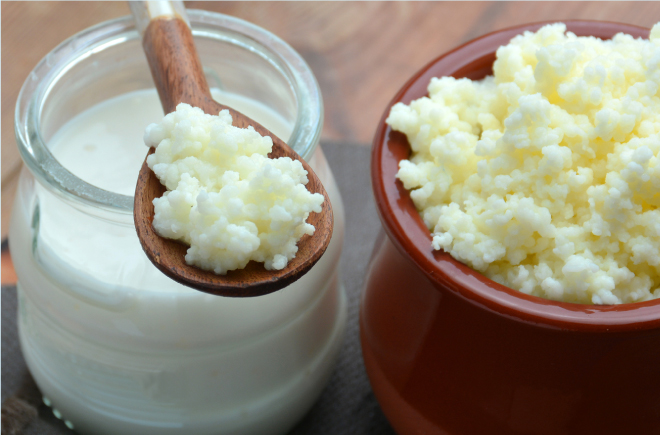
05.Fortify Calcium, Vitamins and Minerals That Are Good
For TeethFortify Calcium, Vitamins and Minerals That Are Good For TeethCalcium is essential for teeth as well as your bones. You can drink milk, eat dairy products such as yogurt, cheese or take calcium supplements according to your age and body’s actual demand. Calcium, Vitamin D, Copper, Zinc, Iodine, Iron and Potassium are necessary to maintain the health of gums and teeth, while Vitamin B is also essential for the protection of gums and teeth from cracking and bleeding.
-
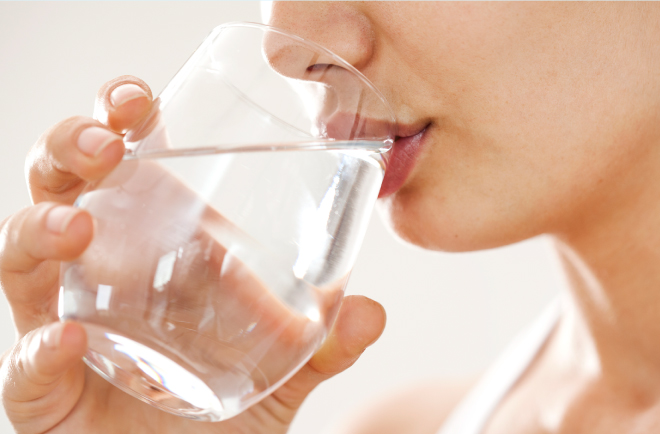
06.Drink Enough Water
Drink Enough WaterKeeping your mouth moist is really important, because a dry mouth is the perfect atmosphere for plaque development, which is considered the main cause of cavities and gum diseases. Mouth dryness is caused by smoking, alcohol, caffeine and especially some over-the-counter drugs. Drinking plenty of water might help moisturizing your mouth, promoting the healthful action of saliva which supports for good digestion, fighting with germs and preventing cavities.
-
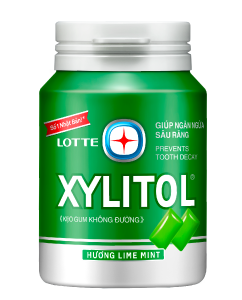
07.Use Xylitol Products
Use Xylitol ProductsXylitol helps reducing the plaque development on the tooth surface, the main cause of cavities. The benefit of preventing tooth decay product containing Xylitol such as gum and toothpaste has been proved to decrease the number of people who have cavities after a long time usage in many countries all over the world.
-

08.Visit Your Dentist
Visit Your DentistYou should visit your dentist at least twice a year to have a full oral health checkup. The professional testing and x-rays exam might help you to find the risk of tooth decay at early stage to prevent from the very first step of its development.
When you have a good oral health,
you are confident in
your daily communication also you are confident to shine.
So, always keep your teeth healthy near you,
with LOTTE XYLITOL DENTAL GUM.
